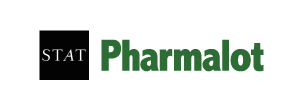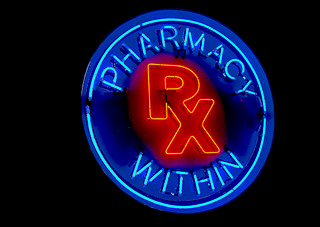The clamor over prescription drug pricing often implies that medicines simply cost too much. But many experts say the debate can easily overlook an important point – is a given treatment really worth the price? To help payers, physicians, and consumers answer this question, the National Comprehensive Cancer Network, a non-profit that develops treatment guidelines, has developed a new tool called Evidence Block to assess whether medicines are affordable in the context of overall cancer care. We spoke with Robert Carlson, the NCCN chief executive, about its approach and its hopes for helping patients make important decisions. This is an edited version…
Pharmalot: Where did the idea come from?
Carlson: We had organized an effort among providers, patients, the pharmaceutical industry, and payers once before six or seven years that looked at a drug’s toxicity, effectiveness, and cost to come up with a rating, but it ultimately failed. The stakeholders could not agree on what defined effectiveness across different forms of cancer.
More recently, we’ve had health care physicians who use our guidelines ask for more information about our recommendations. And we’ve had patients tell us they’d like to understand a rationale for the recommendations in our guidelines. And this happened at a time when there’s increased interest in the value of cancer care and the cost of that care. We started this latest initiative about 18 or 24 months ago in terms of refining the concept and testing it.
Pharmalot: The tool uses five measures. Can you tell us about them?
Carlson: We measure effectiveness of a treatment; its safety, or toxicity; and the quality and quantity of evidence used to determine the safety and effectiveness. We want to know if the evidence is reliable.
Pharmalot: And the fifth measure is affordability.
Carlson: Yes, but normally our panels [of experts who determine treatment recommendations] do not look at affordability. And that policy is actually still in place. A decision whether or not to recommend a treatment is not based on cost or affordability, but health care providers, payers, and patients want that information. So now we’re providing that in the Evidence Block.
Pharmalot: How do you measure affordability?
Carlson: There’s a 1 to 5 point scale going from very inexpensive to expensive. The panelists are asked to rate each therapy recommendation on the scale. They’re told to consider drug acquisition costs, drug administration costs, and supportive care costs. And they look at whether this involves hospitalization or an outpatient setting. They also look at the likelihood of encountering toxicity and the expenses associated with that. And they take that whole package and rate the affordability.
Pharmalot: So is this like buying a car?
Carlson: It is like buying a car, except the difference today is that when you buy a car, you see the sticker price. Medicine today is like going to a used car lot and not seeing the sticker. So the customer has no idea about the difference between cars, whether it’s a Porsche or something else. That’s the challenge. So this provides transparency about the relative magnitude of cost. We’re hoping to a get a conversation started before patients start a therapy, so they have the tools to know if they’re putting family in financial jeopardy or not.
Pharmalot: But you don’t actually provide specific drug prices, do you?
Carlson: No, this does not provide a dollar cost. The health care system in the U.S. is so complicated that no two patients almost ever pay the same price. So to provide a dollar cost would be to guarantee we’d always be wrong. But it does help to demystify some of the linkage between efficacy and cost.
The goal is not to influence cost. The goal of the initiative is to add transparency to cost. Whether or not adding transparency ultimately focuses on [pricing], we’ll have to wait and see..
Pharmalot: Have you gotten push back from drug makers?
Carlson: Yes, but we have a lot of interactions with represents from industry. The Evidence Block is a topic of a lot of discussion recently, especially the affordability measure. Most of the industry response involves asking: What does cost mean? Is it the out-of-pocket cost to patient? Is it the cost to payers or the cost to employers? Is it the cost to society? But I think they understand the potential value.
Pharmalot: How accessible will the tool be to patients?
Carlson: Patients already access our information and guidelines in many different ways. They go to the website and access information just as a healthcare provider would. Anyone can access this. They just have to register.
 Print This Post
Print This Post




